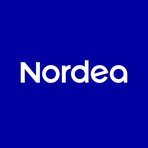Nordea Bank's Strategic Share Buyback: A Closer Look at Recent Transactions
April 18, 2025, 10:47 am
In the world of finance, share buybacks are like a company’s way of saying, “We believe in ourselves.” They signal confidence and a commitment to shareholder value. Recently, Nordea Bank Abp has been actively repurchasing its own shares, a move that has caught the attention of investors and analysts alike. This article delves into the details of these transactions, their implications, and what they mean for the bank's future.
Nordea Bank Abp, a major player in the Nordic financial landscape, has embarked on a significant share buyback program. Announced on March 6, 2025, the program allows for repurchases of up to EUR 250 million. This initiative is backed by the authorization granted during the bank's Annual General Meeting in 2024. The buyback is not just a financial maneuver; it’s a strategic play to enhance shareholder value and optimize capital.
Between April 14 and April 17, 2025, Nordea executed a series of buybacks across various trading venues. Each transaction reflects a careful calculation of market conditions and share prices. On April 14, the bank repurchased 499,530 shares at an average price of EUR 10.87, totaling approximately EUR 5.43 million. The following day, the pace quickened. On April 15, Nordea bought back 488,442 shares at an average price of EUR 11.10, bringing the total cost to around EUR 5.42 million.
The trend continued on April 16, with 474,205 shares repurchased at an average price of EUR 11.20, costing about EUR 5.31 million. Finally, on April 17, the bank acquired 446,624 shares at an average price of EUR 11.32, totaling around EUR 5.05 million. The cumulative effect of these transactions is substantial, with Nordea investing over EUR 21 million in just four days.
Why is this important? Share buybacks can serve multiple purposes. They reduce the number of shares outstanding, which can increase earnings per share (EPS). A higher EPS often leads to a higher stock price, benefiting shareholders. Additionally, buybacks can signal to the market that the company believes its shares are undervalued. In a competitive banking environment, such signals can be crucial for maintaining investor confidence.
As of the latest transactions, Nordea holds a significant number of treasury shares. After the buybacks, the bank reported holding 11,262,182 shares for capital optimization and 10,300,012 shares for remuneration purposes. This strategic allocation indicates a dual focus: enhancing shareholder returns while also preparing for employee compensation through stock options or similar programs.
The buyback program is executed in compliance with European regulations, specifically Regulation No. 596/2014 and the Commission Delegated Regulation (EU) 2016/1052. This adherence to regulatory standards ensures transparency and fairness in the market, a critical factor for maintaining investor trust.
Market reactions to such buyback announcements can vary. In many cases, they lead to an immediate uptick in stock prices. Investors often interpret buybacks as a sign of financial health and future growth potential. However, the effectiveness of a buyback program can depend on broader market conditions and investor sentiment.
Nordea's recent buybacks come at a time when the financial sector is navigating a complex landscape. Interest rates, inflation, and geopolitical tensions all play a role in shaping market dynamics. In this context, Nordea's proactive approach to share repurchases may be seen as a hedge against uncertainty. By investing in its own shares, the bank is essentially betting on its long-term viability and growth.
Looking ahead, the success of this buyback program will depend on several factors. First, the bank must continue to perform well financially. Strong earnings will bolster the rationale for further buybacks and enhance shareholder confidence. Second, market conditions must remain favorable. A downturn could challenge the bank's ability to sustain its buyback efforts.
Moreover, Nordea must balance its buyback strategy with other capital needs. Investments in technology, compliance, and customer service are crucial for staying competitive. The bank must ensure that it does not sacrifice long-term growth for short-term stock price gains.
In conclusion, Nordea Bank's recent share buyback activity is a significant move in the ever-evolving financial landscape. It reflects a commitment to shareholder value and a strategic approach to capital management. As the bank navigates the complexities of the market, these buybacks may serve as both a signal of confidence and a tool for optimizing its capital structure. Investors will be watching closely to see how this strategy unfolds in the coming months. The road ahead may be challenging, but with a solid foundation and a clear vision, Nordea is poised to weather the storm.
Nordea Bank Abp, a major player in the Nordic financial landscape, has embarked on a significant share buyback program. Announced on March 6, 2025, the program allows for repurchases of up to EUR 250 million. This initiative is backed by the authorization granted during the bank's Annual General Meeting in 2024. The buyback is not just a financial maneuver; it’s a strategic play to enhance shareholder value and optimize capital.
Between April 14 and April 17, 2025, Nordea executed a series of buybacks across various trading venues. Each transaction reflects a careful calculation of market conditions and share prices. On April 14, the bank repurchased 499,530 shares at an average price of EUR 10.87, totaling approximately EUR 5.43 million. The following day, the pace quickened. On April 15, Nordea bought back 488,442 shares at an average price of EUR 11.10, bringing the total cost to around EUR 5.42 million.
The trend continued on April 16, with 474,205 shares repurchased at an average price of EUR 11.20, costing about EUR 5.31 million. Finally, on April 17, the bank acquired 446,624 shares at an average price of EUR 11.32, totaling around EUR 5.05 million. The cumulative effect of these transactions is substantial, with Nordea investing over EUR 21 million in just four days.
Why is this important? Share buybacks can serve multiple purposes. They reduce the number of shares outstanding, which can increase earnings per share (EPS). A higher EPS often leads to a higher stock price, benefiting shareholders. Additionally, buybacks can signal to the market that the company believes its shares are undervalued. In a competitive banking environment, such signals can be crucial for maintaining investor confidence.
As of the latest transactions, Nordea holds a significant number of treasury shares. After the buybacks, the bank reported holding 11,262,182 shares for capital optimization and 10,300,012 shares for remuneration purposes. This strategic allocation indicates a dual focus: enhancing shareholder returns while also preparing for employee compensation through stock options or similar programs.
The buyback program is executed in compliance with European regulations, specifically Regulation No. 596/2014 and the Commission Delegated Regulation (EU) 2016/1052. This adherence to regulatory standards ensures transparency and fairness in the market, a critical factor for maintaining investor trust.
Market reactions to such buyback announcements can vary. In many cases, they lead to an immediate uptick in stock prices. Investors often interpret buybacks as a sign of financial health and future growth potential. However, the effectiveness of a buyback program can depend on broader market conditions and investor sentiment.
Nordea's recent buybacks come at a time when the financial sector is navigating a complex landscape. Interest rates, inflation, and geopolitical tensions all play a role in shaping market dynamics. In this context, Nordea's proactive approach to share repurchases may be seen as a hedge against uncertainty. By investing in its own shares, the bank is essentially betting on its long-term viability and growth.
Looking ahead, the success of this buyback program will depend on several factors. First, the bank must continue to perform well financially. Strong earnings will bolster the rationale for further buybacks and enhance shareholder confidence. Second, market conditions must remain favorable. A downturn could challenge the bank's ability to sustain its buyback efforts.
Moreover, Nordea must balance its buyback strategy with other capital needs. Investments in technology, compliance, and customer service are crucial for staying competitive. The bank must ensure that it does not sacrifice long-term growth for short-term stock price gains.
In conclusion, Nordea Bank's recent share buyback activity is a significant move in the ever-evolving financial landscape. It reflects a commitment to shareholder value and a strategic approach to capital management. As the bank navigates the complexities of the market, these buybacks may serve as both a signal of confidence and a tool for optimizing its capital structure. Investors will be watching closely to see how this strategy unfolds in the coming months. The road ahead may be challenging, but with a solid foundation and a clear vision, Nordea is poised to weather the storm.

